Founder: Professor Carlos A. Brebbia
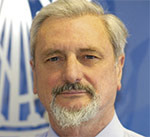
Carlos was born in Argentina where he completed his first engineering degree. He spent two stimulating years after graduation as part of a small team setting up an Institute of Applied Mechanics. Following this, he registered at the University of Southampton in England for a higher degree, arranging to carry out his research partly at MIT. This experience, which he found most rewarding, established the basis for his long and close association with the USA.
After obtaining his PhD at Southampton he worked for the Central Electricity Research Laboratories in the UK, a leading research establishment at the time. He left the Laboratories to take an academic position at the University of Southampton where he rose from Lecturer to Senior Lecturer and Reader. During his time at Southampton, he took leave to become Visiting Professor at many other universities, including an academic year at Princeton University. After having been appointed Full Professor of Engineering at the University of California, Irvine, he decided to resign his position and return to the UK to set up the Wessex Institute, of which he was the Founder and Director.
Carlos is renowned throughout the world as the originator of the Boundary Element Method, a technique that generates important research work at Wessex Institute. He has written many scientific papers, is editor of many volumes and is the author or co-author of thirteen books. He founded several international journals.
He established two International prizes, the highly regarded Prigogine Medal for Ecological Systems Research, co-sponsored by the University of Siena; and the George Green Medal, supported by Elsevier and co-sponsored by the University of Mississippi.
Carlos ran a successful WIT programme of international scientific conferences in different locations throughout the world. He helped the Institute to develop academic links with first-class institutions around the world, which has resulted in many more research programmes and collaborative projects. He was also responsible for the publishing programme of the Institute which includes, in addition to the conference proceedings, a series of monographs and edited books by some of the foremost scientists in the world.
Chairman: Alexander Carlos Brebbia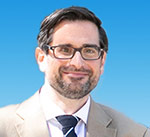
Alexander Brebbia graduated as an engineer before qualifying as a Chartered Accountant with PwC.
Since then he has spent over 20 years as a private equity investor sitting on the Boards of numerous businesses including those in the engineering and manufacturing sectors.
Academic Director: Stavros Syngellakis
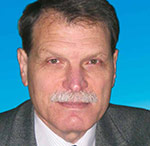
Professor Syngellakis has a long career in teaching and research in solid and structural mechanics. He has published well over 100 papers on advanced applications of analytical and computational techniques to a wide range of structural engineering and material technology problems.
His novel numerical work is mainly based on the Boundary Element Method and he also has considerable experience in the use of general-purpose finite element codes for advanced micromechanical, bioengineering, fatigue and fracture mechanics simulations.
He has supervised many doctoral programmes to completion and participated in various industry-sponsored projects.
Members of the International Advisory Council
Santiago Hernández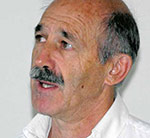
Professor Santiago Hernández from the University of A Coruña, Spain, is a leading expert in structural engineering, Bridge Design and Optimisation Techniques.
He is Co-Chairman of many WIT conferences, Adjunct Professor, as well as a member of the WIT International Advisory Council. Santiago has numerous scientific publications and has written many books.
Alexander Cheng
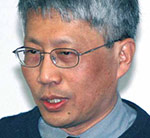
Alexander Cheng is Dean of the School of Engineering at the University of Mississippi.
He is also a Fellow of the Wessex Institute. He is a renowned expert on Boundary Element Methods and has written numerous books, well over 100 refereed journal papers and a similar number of papers for international conferences.
He was awarded the prestigious George Green Medal for his work on Boundary Element Research. The Medal is co-sponsored by Elsevier.
Daniele De Wrachien
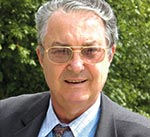
Daniele de Wrachien is Professor of Irrigation and Drainage at the Department of Agricultural Engineering of the State University of Milan from where he graduated in Geology.
His research interests are water resources management; irrigation and drainage technology; modelling of transport processes in porous media; debris and hyperconcentrated flow simulation; flood control and mitigation measures; desertification and environmental impacts of climate change.
Daniele is author of many papers in his field of interest and he has participated in numerous scientific conferences. His activities at WIT have included the organisation of special seminars and conferences on water resources, flood and debris flow.
Among his many distinctions, he has been President of EURAgEng (European Society of Agricultural Engineers) and member of the Executive Board of ICID (International Commission on Irrigation and Drainage).
Theodore Hromadka
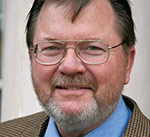
Ted Hromadka is Professor at West Point and Principal at Hromadka & Associates, Costa Mesa, California.
His expertise includes designing master plans for surface water hydrology and the development of computer systems. In addition, he has written plans for water quality enhancement, sediment and debris protection, and run-off management.
Dr Hromadka has written more than 20 books on various topics related to hydrology.
Stefano Mambretti
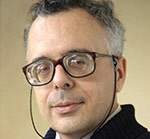
Stefano Mambretti is Associate Professor of Hydraulic Engineering at the Politecnico di Milano, where he teaches and carries out research.
His field of expertise is hydraulics and hydrological models, topics in which he has numerous publications. Stefano is also internationally renowned for his work on debris flows, urban water, flood systems and flood prevention, management and recovery.
He has organised several WIT International Conferences and has served on the Editorial Board of multiple journals published by WIT Press.
Giorgio Passerini
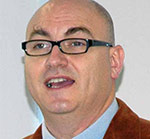
Giorgio Passerini is Associate Professor at the Dipartimento di Ingegneria Industriale e Scienze Matematiche at the Universita Politecnica delle Marche in Ancona, Italy.
His research team has focused on the following three areas: air pollution assessment and remediation; the evaluation of airborne pollutants due to the treatment of organic fraction of municipal solid waste; Smart Cities and management and optimisation of municipalities with special attention to energy consumption.
He represents WIT at many of our conferences and has been associated with many training, research and publishing activities at WIT.
George Pinder
 George Pinder is Professor of Civil and Environmental Engineering at the University of Vermont in Burlington.
George Pinder is Professor of Civil and Environmental Engineering at the University of Vermont in Burlington.
His area of research is the development and application of applied mathematics, especially numerical methods to solve groundwater contamination and supply problems.
George is author of several books and many scientific and technical papers. He has also acted as a consultant in many important projects.
He became associated with WIT when it was first started and has participated in many training and publishing activities. One of these initiatives was the launching of the Journal of Water Resources, now published by Elsevier.
Dragan Poljak
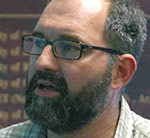 Professor Dragan Poljak from the University of Split, Croatia, is an international expert on electromagnetic radiation and carries out research in this field. Prof Poljak has been awarded the National Prize for Sciences by the Croatian Committee of Science and Technology, sponsored by the National Parliament.
Professor Dragan Poljak from the University of Split, Croatia, is an international expert on electromagnetic radiation and carries out research in this field. Prof Poljak has been awarded the National Prize for Sciences by the Croatian Committee of Science and Technology, sponsored by the National Parliament.
He has numerous publications in his field, including several well-known books.
Eckart Schnack
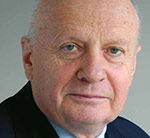 Eckart Schnack is Professor of Solid Mechanics at the University of Karlsruhe, Germany.
Eckart Schnack is Professor of Solid Mechanics at the University of Karlsruhe, Germany.
He is an expert in numerical methods of continuum mechanics and on experimental methods of mechanics.
He has over 200 publications to his name and has obtained many prestigious awards throughout his career.
Antonio Tadeu
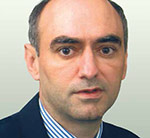
Professor Antonio Tadeu from the University of Coimbra has collaborated with the Institute in many conferences and publications.
He is an expert in computational modelling and has applied techniques for the solution of structural, acoustic, fluid dynamics and many other problems.
He has recently been awarded the prestigious George Green Medal for his research into Boundary Element Methods.

 Wessex Institute
Wessex Institute